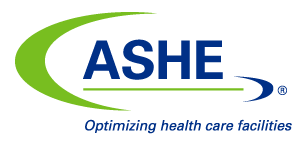AIA/AAH Deep Dive: Principles of Healthcare Futurism -Harnessing AI to Revolutionize Healthcare: Innovations, Challenges, and the Road Ahead | PDC Summit™ 2025
Event Format
Date
Sun, Mar 09, 2025, 09:00 AM CDT – Sun, Mar 09, 2025, 10:30 AM CDTEvent Host

Open To
Description
The pace of change will never be this slow again.” Defining the "future of healthcare" has eluded the innovation and tech giants of our time, including recent high-profile failures and terminated experiments from Amazon, Google, and Walmart. However, some trends are already apparent: Markets demand more personalized, integrated, and on-demand service. Technology gets smaller and cheaper every day. And anything that could be done by AI, eventually will.
Attendees will discover how to build a team optimized for innovation and what emerging technological and AI advancements you should start considering for your own business, participate in a discussion about the consequences of changing societal norms and preferences, and learn about the success and failures of real-world healthcare design innovation case studies.
- Participants will explore the distinct categories of AI—narrow AI, general AI, and superintelligent AI—and their specific applications in healthcare settings. By learning how each category can uniquely impact various aspects of healthcare delivery, participants can better anticipate the design implications they bring.
- Attendees will learn ways AI can be implemented in the future of healthcare. By covering the broader implications of AI adoption, including ethical considerations, regulatory challenges, and the potential for AI to transform patient outcomes and healthcare operations, participants will gain insights into how AI can address current healthcare challenges. This will better prepare them to foresee future developments that may influence strategic planning and their impacts on the healthcare environment.
- Viewers will learn strategies for guiding internal teams through the visioning process, fostering a forward-thinking culture that embraces technological advancements and re-envisioning the built environment. Allowing each attendee to understand how to effectively communicate the importance of AI and drive organizational and physical change.
- Participants will be introduced to best practices for piloting AI projects, including selecting appropriate pilot projects, measuring outcomes, and scaling successful initiatives. They will also learn how to develop comprehensive strategies that position their teams to design and implement AI-driven solutions, ensuring sustainable and impactful healthcare delivery in a reimagined environment of care.

